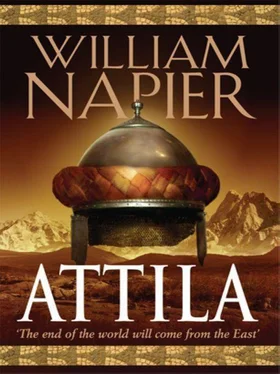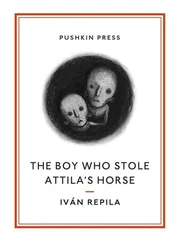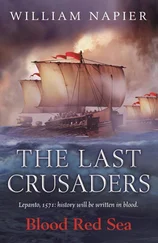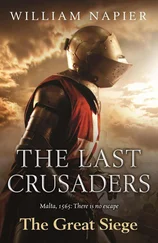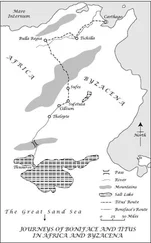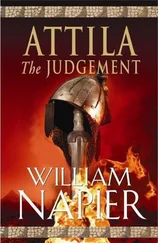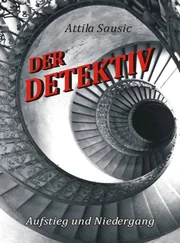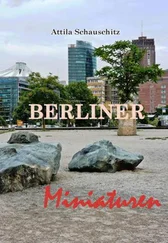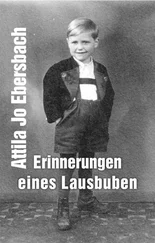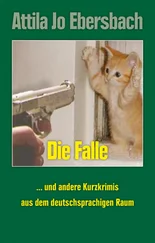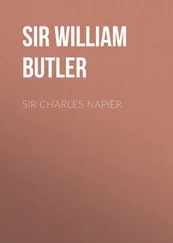William Napier - Attila
Здесь есть возможность читать онлайн «William Napier - Attila» весь текст электронной книги совершенно бесплатно (целиком полную версию без сокращений). В некоторых случаях можно слушать аудио, скачать через торрент в формате fb2 и присутствует краткое содержание. Жанр: Исторические приключения, на английском языке. Описание произведения, (предисловие) а так же отзывы посетителей доступны на портале библиотеки ЛибКат.
- Название:Attila
- Автор:
- Жанр:
- Год:неизвестен
- ISBN:нет данных
- Рейтинг книги:5 / 5. Голосов: 1
-
Избранное:Добавить в избранное
- Отзывы:
-
Ваша оценка:
- 100
- 1
- 2
- 3
- 4
- 5
Attila: краткое содержание, описание и аннотация
Предлагаем к чтению аннотацию, описание, краткое содержание или предисловие (зависит от того, что написал сам автор книги «Attila»). Если вы не нашли необходимую информацию о книге — напишите в комментариях, мы постараемся отыскать её.
Attila — читать онлайн бесплатно полную книгу (весь текст) целиком
Ниже представлен текст книги, разбитый по страницам. Система сохранения места последней прочитанной страницы, позволяет с удобством читать онлайн бесплатно книгу «Attila», без необходимости каждый раз заново искать на чём Вы остановились. Поставьте закладку, и сможете в любой момент перейти на страницу, на которой закончили чтение.
Интервал:
Закладка:
But Aetius said no more. He took a single step back, dropped hands at his sides, and lowered his eyes to the ground.
The people looked warily on, anxious lest the king’s wrath should turn against them, too. He was only one man, and they were thousands, and tens of thousands, yet the will of Ruga, like the will of all the kings of the Huns, and perhaps all kings among men, was as real and powerful as an iron rod on your back, and none but the very strongest might oppose it.
Ruga stepped back from Attila and looked angrily around at his people. None met his gaze.
At last he gestured at his prostrate nephew, and said to his guards, ‘Take him and his dear Roman boyfriend, too, and lash them to the wagon out on the plains. The two slaves – and they are slaves still – they shall serve in my tent henceforth, And woe betide you,’ he called across to the wide-eyed Orestes and Cadoc, ‘if you should spill so much as a drop of koumiss when you refill my royal goblet, do you hear?’
Ruga turned on his heel and strode back to his great adorned pavilion, and the chastened people shuffled slowly away. The two slaves crept uncertainly after the king.
And the two boys, Roman and Hun together, were led out by a group of spearmen, and walked for three miles across the baking steppe, until they came to a high flatbed wagon, the grass grown long about its solid wooden wheels. There they stripped the boys naked, and lashed them flat on their backs across the bed of the cart, even their necks and heads tied so tightly that they could not turn away from the sun. And they left them there, to burn and then freeze for a day and a night.
‘Well,’ said Attila companionably, when the guards had ridden away back to camp and they had only the whispering wind and the burning sun for company.
‘Well,’ said Aetius.
‘Here we are.’
‘Indeed.’
‘Are you thirsty?’
‘Of course I’m thirsty. Have you got any water?’
There was a pause. Then for some reason, from the fear before and now the long pain of the day and the night that lay ahead of them, they began to laugh. They laughed hysterically, until the tears ran over their cheeks.
Attila said, ‘Stop, stop, we need to conserve our water,’ but they only laughed the more.
Eventually the laughter died on their lips, and the tears dried on their cheeks, and they fell silent.
The sun burnt down. They screwed their eyes shut, but the red and orange sun cooked through their lids. Their lips began to dry and crack, and their cheeks and foreheads to burn.
‘Keep your mouth closed,’ said Attila. ‘Breathe through your nose.’
‘I know, I know,’ said Aetius.
‘We’ll survive this.’
‘Damn right we will.’
Towards dusk they heard a sound in the long grass, not far away. For a moment they hoped it might be the guards, come back to release them, Ruga having relented of his harshness. But no, Ruga never relented of his harshness.
‘What is it?’ croaked Aetius, his throat as rough as the skin of a shark.
Attila snuffed the air, and his insides gave a lurch of fear. ‘Golden jackal,’ he whispered. ‘Pack of them.’
The Roman cursed, the first time Attila had ever heard him do so, then said, ‘Can they get up?’
Attila tried to shake his head, but of course he couldn’t. ‘Don’t think so,’ he said. ‘Make a loud noise if they do.’
As dusk settled over the vast and lonely plains, the two boys lay in taut silence, hearing and smelling the rank hot smell of the golden jackals as they snuffled round the wheels of the cart, raising their damp noses into the air and sniffing the warm, salty aroma of sunburnt human flesh.
Although unable to raise or turn their cruelly bound heads, the boys knew that the jackals were just below them, their slender, powerful jaws drooling, slavering into the long grass. And both boys imagined the same thing: the feel of those sharp white teeth as the creatures tore at their stomachs, pulled the skin aside, and delved their long muzzles into their innards, devouring their rich, bloody livers and spleens as they lay there, still alive. Or the jackals nuzzling lower, and feeding on their sunburnt, exposed…
Whether it was simply a warm gust of air, or whether it was truly a jackal, its forefeet up on the side of the wagon beside his head, its hot canine breath wafting over his face, Attila would never know. But with sudden urgency he said, ‘Now – shout!’
The boys broke into a frenzied shouting, as loud as their blistered and sun-parched throats could manage. When they stopped shouting they could still hear the distant whimpering and yikkering of the jackal pack, far off now and curving away into the feathergrass.
But they would be back.
Throughout many more hours of dusk and night, Attila and Aetius lay side by side, driving the jackals away with their panicked, grating voices raised to shouts. It would be only a matter of time before the jackals realised that shouting was all they could do, and then… But the jackals never did realise.
Flies and mosquitoes came out and bit them from head to toe. Moths fluttered up from the long grass and sipped the crusted saltwater that lay on their skins. Towards dawn both boys were shivering so badly in the chilly steppeland night, that their chattering teeth sounded like the call of two giant cicadas in the day.
But they had survived. Dawn was coming up, surely – and soon the warriors would come to unbind them, and sling them semi-conscious across the croups of their horses and ride them back into camp.
As the first pale grey of the dawnlight washed up over the steppes from the east, Attila lay in a pained, wretched half-dream, and he thought he dreamt of a voice he knew, saying, ‘Don’t tell me – you’re in trouble again.’
In his dream, he opened his eyes, and looked up at the swimming, familiar face above him, and croaked, ‘Don’t tell me you travelled all this way, just to see me.’
Then the face was grinning, upside down over him so that it looked all wrong, and a sharp blade was cutting the ropes that bound him, and the blood was flooding back with agonising needles into his bloodless hands and feet and flowing hotly under the skin of his scalp.
Aetius was cut free, too, and after some minutes of gasping and rubbing their wrists, the boys were offered water in leather flagons. They tried to guzzle it down, but the flagons were snatched back after only a mouthful each. Only then did they sit painfully up, and stare at their rescuers.
‘Is it really you?’ said Attila at last.
‘It really is,’ he nodded.
‘And you didn’t come here just to see me.’
He shook his head. ‘No, I came here to see my boy. And to take him home.’
‘Your boy?’ Slowly it dawned on him. ‘The slave? The Celtic boy?’
He nodded.
‘But,’ blurted Attila, ‘but he saved my life!’
Lucius grimaced. ‘Like father, like son,’ he said laconically.
5
When the boys’ limbs at last felt mobile, they climbed down stiffly from the cart, and Lucius chucked them each a tunic to put on.
‘I know some of you barbarians fight stark naked,’ he said, ‘but. .. ’
‘I’m no barbarian,’ said Aetius haughtily and in perfect Italianate Latin, far more correctly accented that Lucius’ own, with its soft, Celtic burr.
Attila grinned and pulled his tunic on over his head.
‘And you are…?’ asked Lucius.
‘Aetius, son of the late Gaudentius, master-general of cavalry on the Pannonian frontier.’
Lucius was taken aback. ‘I knew something of your father. He was reputed a good commander.’
‘He was,’ said Aetius stiffly.
‘Well,’ said Lucius. ‘And you are a hostage of peace here with the Huns? They are keeping you well, clearly.’
Читать дальшеИнтервал:
Закладка:
Похожие книги на «Attila»
Представляем Вашему вниманию похожие книги на «Attila» списком для выбора. Мы отобрали схожую по названию и смыслу литературу в надежде предоставить читателям больше вариантов отыскать новые, интересные, ещё непрочитанные произведения.
Обсуждение, отзывы о книге «Attila» и просто собственные мнения читателей. Оставьте ваши комментарии, напишите, что Вы думаете о произведении, его смысле или главных героях. Укажите что конкретно понравилось, а что нет, и почему Вы так считаете.
